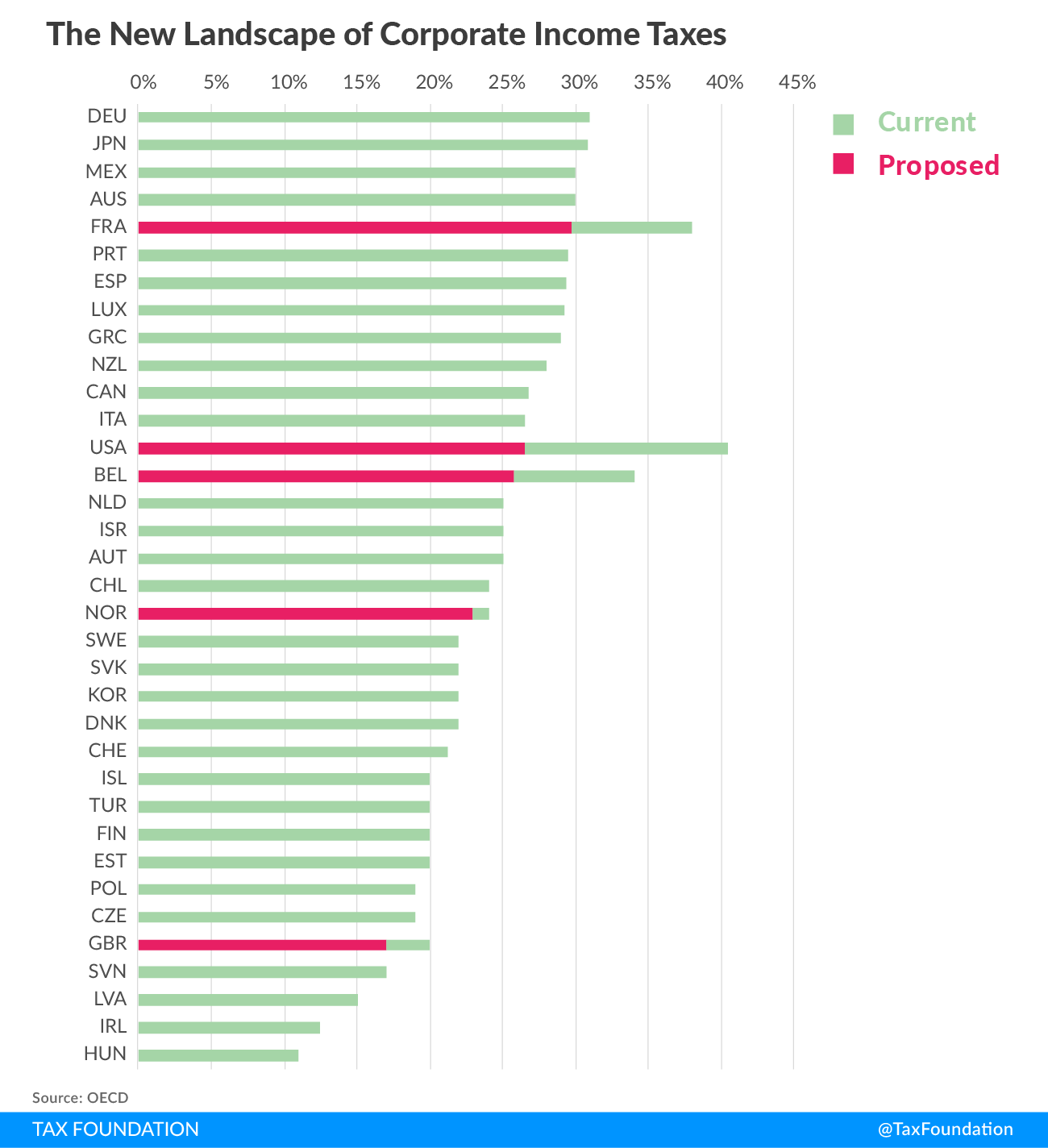The international corporate tax landscape changes as several of the countries with the highest rates have announced their intention to or are in the process of reducing their corporate taxA tax is a mandatory payment or charge collected by local, state, and national governments from individuals or businesses to cover the costs of general government services, goods, and activities. rates. The top three countries with the highest rates in the OECD—United States, France, and Belgium—have announced steep cuts in their corporate rates. If all these proposed corporate tax cuts are passed and fully phased in, then Germany will have the highest statutory corporate tax rate, with Japan a close second.
The United States would end up in the middle of the pack, 13th highest tax of the 35 OECD countries, if the Tax Cut and Jobs Act (TCJA) is passed. This could change multinational corporations’ decisions of where to locate new operations or expand existing operation in the coming years. It would guarantee that taxes would not be a barrier to companies investing in the U.S. economy and hiring U.S. workers.
The TCJA reduces the federal corporate tax rate from 35 percent to 21 percent. Combined with the average of state and local corporate tax rates, the U.S. statutory rate would be 26.5 percent. This puts the United States below the weighted average of EU countries, 26.93 percent, and well below the current weighted average of the OECD, 31.39 percent.

Both France and Belgium have announced steep cuts from their current rates to 25 percent. Belgium does not have subnational taxes on corporations, but does have a 3 percent crisis tax that increases their tax to 25.75 percent. France, on the other hand, has subnational taxes on corporate income which would increase their statutory rate to 29.67 percent.
Germany would have the highest corporate tax in the OECD after these reforms. Germany has a relatively low national corporate tax rate of 15 percent, but also has a solidarity tax of 5.5 percent and subnational taxes between 12.6 and 19.25 percent. This brings their overall tax rate to almost 31 percent.
Japan would have the second highest, at 30.8 percent. Japan has just reduced its corporate tax rate in the Tax Reform Act of 2016, which reduced its national and local combined corporate tax rate from 32.1 percent to the current 30.8.
Share this article